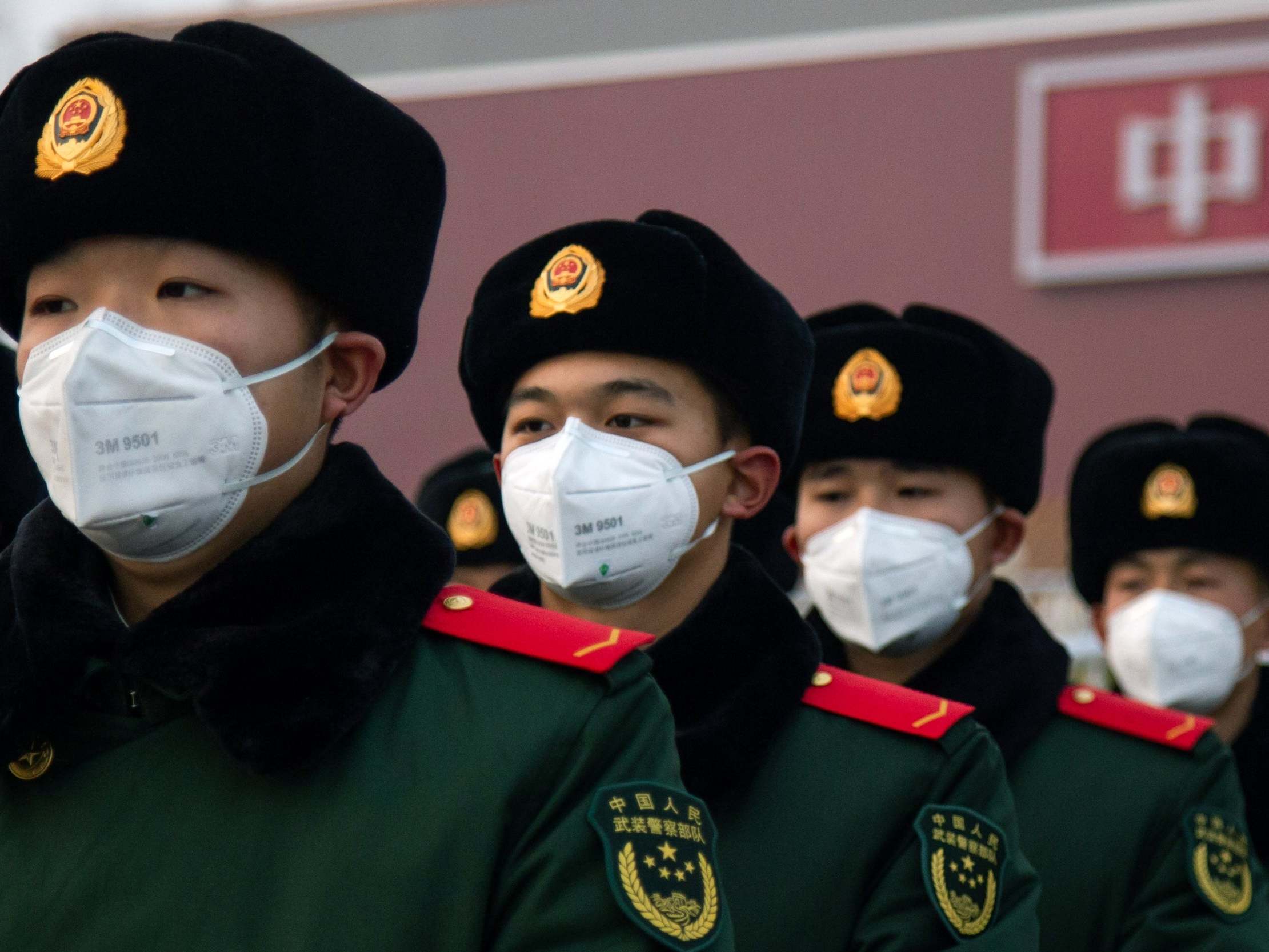Coronavirus: Confusion over government’s plan to get 200 British citizens out of China
Downing Street has accepted some form of airlift necessary, source says
Your support helps us to tell the story
From reproductive rights to climate change to Big Tech, The Independent is on the ground when the story is developing. Whether it's investigating the financials of Elon Musk's pro-Trump PAC or producing our latest documentary, 'The A Word', which shines a light on the American women fighting for reproductive rights, we know how important it is to parse out the facts from the messaging.
At such a critical moment in US history, we need reporters on the ground. Your donation allows us to keep sending journalists to speak to both sides of the story.
The Independent is trusted by Americans across the entire political spectrum. And unlike many other quality news outlets, we choose not to lock Americans out of our reporting and analysis with paywalls. We believe quality journalism should be available to everyone, paid for by those who can afford it.
Your support makes all the difference.Ministers are wrestling with the huge challenge of how to evacuate around 200 Britons trapped in China by the coronavirus after a U-turn on the policy that they should stay put.
Late on Saturday, the Foreign Office switched to urging them to “get out” after advice from the chief medical officer, but ministers appeared blindsided by the consequences of that decision.
The city of Wuhan and the wider Hubei province, where the disease is believed to have originated, have been on lockdown for days as the authorities try to contain the virus.
Both Priti Patel, the home secretary, and the Brexit secretary Stephen Barclay ducked questions about whether airlifts were planned, saying the government was “looking at all options”.
There was a frosty exchange on the BBC’s Andrew Marr programme when Mr Barclay referred to a “fast-moving situation”, the host replying: “They’re not fast moving, they’re stuck.”
The pressure on the government to act rose after both the United States and France announced they would be evacuating citizens from Wuhan by plane within days.
Behind the scenes, Downing Street has accepted that some form of airlift will be necessary if the trapped Britons are to leave, but appeared some way from reaching an agreement with the Chinese authorities.
One source described the issue as being “how” they are evacuated, not whether, and acknowledged the challenge of trying to reach people spread out across a wide area.
“We are talking about hundreds of people in the province, rather than just in Wuhan city itself,” the source told The Independent.
However, ministers are encouraged by the news on the domestic front, with all 52 people so far tested for the virus in the UK found to have negative results.
After initially saying British citizens would be left in Wuhan to avoid spreading the virus to the UK, there was an overnight U-turn after health chiefs concluded that their lives were at risk.

The Department for Health has said the current risk to the British public remains low and the government is continuing to monitor the situation closely.
However England’s chief medical officer, Professor Chris Whitty, said there was a “fair chance” that cases would emerge in Britain.
He said the virus looked “a lot less dangerous” than contracting Ebola, the recent coronavirus MERS and “probably less dangerous” than SARS virus. But he added: “What we don’t know is how far it’s going to spread, that really is something we need to plan for all eventualities.”
China’s national health commission revealed the disease’s ability to spread is getting stronger and infections could continue to rise. A handful of cases of infection have been reported in other countries, including Thailand, Australia, the United States, France and Canada, although no fatalities have been recorded outside China.
The newly-identified coronavirus has created alarm because much about it is still unknown, such as how dangerous it is and how easily it spreads between people.
It can cause pneumonia, which has been deadly in some cases.
Health minister Ma Xiaowei said the virus can be infectious during its incubation period – before symptoms show – which ranges from one to 14 days.
China has temporarily banned live animal trade across the country in markets, supermarkets, restaurants and online.
Any place breeding wildlife should be isolated and the transportation of wildlife should be suspended, the country’s market watchdog, agricultural ministry, and forestry bureau said in a joint statement. It comes after the virus was traced to a seafood market in Wuhan believed to have been illegally selling live animals.
The World Health Organisation’s (WHO) director-general was on his way to Beijing to confer with Chinese officials and health experts about the coronavirus outbreak on Sunday.
In a tweet, Tedros Adhanom Ghebreyesus said he wanted to “strengthen our partnership” with China “in providing further protection against the outbreak”.
The Geneva-based WHO also said editors of major scientific journals had agreed to share any papers about the new coronavirus with it before publication, with authors’ consent, and that this would help inform its assessment and guidance.
Additional reporting by agencies.

Join our commenting forum
Join thought-provoking conversations, follow other Independent readers and see their replies
Comments